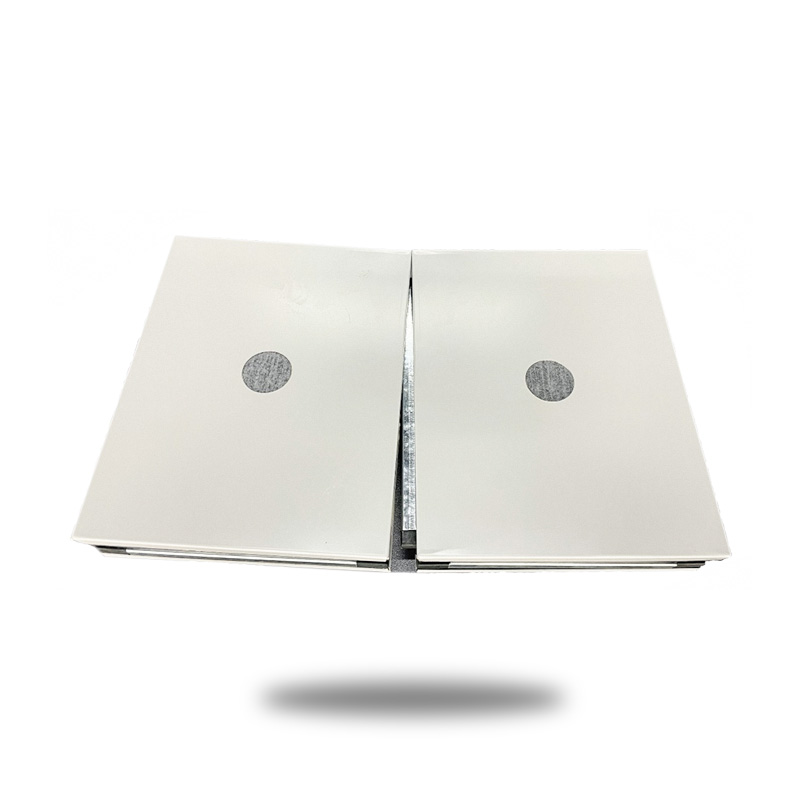

In industries where contamination control is critical—s […]
In industries where contamination control is critical—such as pharmaceuticals, biotechnology, electronics, and food processing—clean rooms are essential environments designed to maintain a controlled level of cleanliness. Clean room panels play a crucial role in achieving and maintaining the necessary standards of air quality and environmental control within these specialized spaces.
Clean room panels are engineered wall systems used in the construction of clean rooms. These panels are designed to provide a barrier that prevents the entry of particles, bacteria, and other contaminants into the clean room environment. They are manufactured from a variety of materials, including metal, gypsum, and composite materials, and are available in various configurations depending on the specific needs of the clean room.
The design of clean room panels is based on strict industry standards to meet the stringent requirements for air quality, temperature control, humidity levels, and particle containment. Their composition and construction are critical in creating a space that minimizes contamination, ensuring that the clean room maintains the desired conditions for manufacturing, testing, or research.
Clean room panels are designed with smooth, non-porous surfaces to prevent dust accumulation and microbial growth. The joints between the panels are sealed with precision to ensure that there are no gaps where particles could penetrate.
These panels are built to withstand the challenges of high-traffic environments. They must be strong enough to handle the mechanical stresses of daily use while maintaining their integrity over time. Durability is especially important in settings where heavy equipment or machinery is present.
Clean room panels often have excellent thermal insulation properties, helping to maintain the temperature and humidity levels within the controlled environment. This is essential for industries such as pharmaceuticals or food processing, where specific temperature conditions must be maintained.
Many clean room panels are constructed with fire-resistant materials to ensure safety in the event of a fire. This is particularly crucial in industries where flammable materials or volatile chemicals are used.

Clean room panels can be tailored to meet the specific needs of the clean room. Manufacturers offer a variety of finishes, thicknesses, and core materials to meet different cleanliness classifications and industry standards.
Given that cleanliness is a priority in clean rooms, the panels are designed to be easy to clean and maintain. Many clean room panels have anti-microbial coatings, which further inhibit the growth of bacteria and mold.
The primary benefit of clean room panels is their ability to control contamination within the clean room environment. By providing a seamless, smooth, and non-porous surface, clean room panels significantly reduce the risk of particle infiltration.
The insulation properties of clean room panels help maintain temperature and humidity levels more efficiently, reducing the need for excessive energy consumption. This energy-saving feature is particularly important in industries where climate control is vital to product quality.
The modular nature of clean room panels allows for quick and efficient installation, which can significantly reduce construction costs and time. Additionally, the longevity and durability of the panels ensure long-term savings, as they require less frequent maintenance or replacement.
Clean rooms must meet specific standards set by regulatory bodies such as the FDA (Food and Drug Administration), ISO (International Organization for Standardization), and GMP (Good Manufacturing Practices). Clean room panels are designed to meet these standards, ensuring that the clean room remains compliant with regulations for particle control and air quality.
Clean room panels can be customized to suit the specific requirements of different industries, whether it's a pharmaceutical lab, semiconductor manufacturing facility, or food processing plant. Their flexibility allows them to meet a wide range of cleanliness classifications (e.g., ISO Class 1 to ISO Class 9) and room configurations.
In pharmaceutical manufacturing, clean room panels are used to create environments that are free from airborne contaminants that could compromise the quality of drugs. The panels are part of a system designed to maintain strict air quality, temperature, and humidity levels, ensuring that pharmaceutical products are produced in compliance with health and safety regulations.
The semiconductor industry requires environments with very low levels of particulates, as even the smallest particles can damage sensitive electronic components. Clean room panels help maintain the necessary environmental control, preventing contamination during the manufacturing of chips and other electronic devices.
In the food industry, clean room panels are used in the production of packaged food, beverages, and pharmaceuticals to ensure that the products are not exposed to contaminants. The panels help maintain sanitary conditions, protecting the integrity of food products and ensuring consumer safety.
Clean room panels are used in the production of medical devices to ensure that contamination does not affect the functionality or safety of the devices. These panels help manufacturers meet regulatory standards for clean production environments.
Clean room panels are crucial in research and laboratory settings where scientific experiments are conducted, particularly in fields like biotechnology and genomics. The controlled environment prevents contamination, ensuring accurate results and high-quality outcomes.
In aerospace and defense industries, clean rooms are used to manufacture sensitive equipment and components. Clean room panels help ensure that these components are produced without contamination, which could affect their performance in critical applications.
Clean room panels are integral to maintaining the integrity and cleanliness of controlled environments in various industries. Their ability to create a contamination-free zone, coupled with their durability, energy efficiency, and customization options, makes them essential components in clean room design. Whether in pharmaceuticals, semiconductor manufacturing, or food processing, clean room panels ensure that industries meet stringent regulatory standards, providing safe and high-quality products to consumers.
Our new models offer superb design;competitive prices and their new features give them distinct advantages over similar products from other manufacturers.